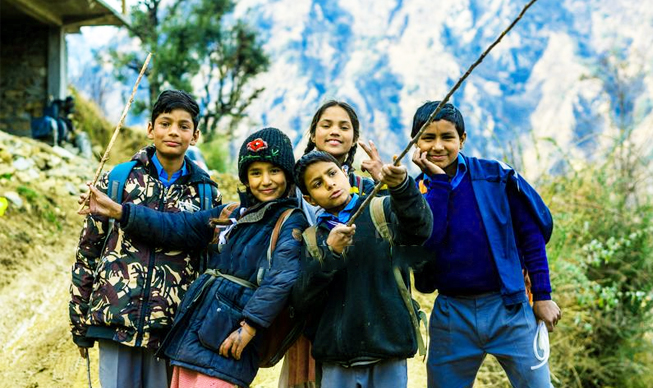Three Sixty Holidays With Responsible Tourism

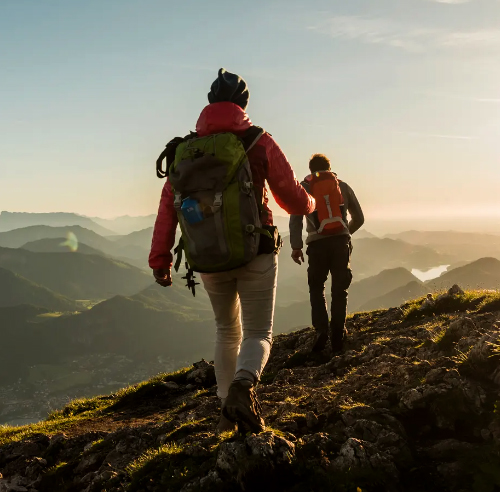
Responsibility is an extensive word, and it is about accepting that we are the cause & the solution of the matter. Whether it is in the context of our personal life or our profession, our daily activities, or even when we visit someone’s place, we are responsible for our actions and surroundings. It becomes our obligation to act responsibly on the subject we are associated with.


Tourism has always been around us for decades. Like food, shelter, and clothing, traveling is also becoming an essential part of everyone’s life. Have you ever imagined what it would be like if we stayed in the same place forever, without traveling anywhere? Not possible, right? Forget about the whole life, mere during the Covid period we were so desperate to come out of the concrete walls and go back to the regular life like earlier.
Whether it’s a holiday trip, meeting friends and relatives, attending ceremonies, or even for a business purpose, many people around the globe travel during their lifetime, thus contributing towards tourism. But tourism also has both good and bad impacts on nature, culture, and society. So, to minimize the negative impact and maximize the positive ones on a destination, Responsible tourism is the way ahead.
What is Responsible Tourism?
Responsible Tourism involves travelers visiting a particular destination with a responsibility towards that place. It means consuming the resources available in a region in such a manner that minimizes the negative impact on the environment and the society and which also brings economic benefits to the host community.
Traveling responsibly not only benefits the environment and the host community but also helps our future generations to have an experience of that travel destination.
Tourists visiting a destination should ask a few questions to themselves –
- How much do I know about the place I am traveling to?
- Will my choice of travel impact the environment?
- Will the money I spend going to help the locals?
Once a traveler knows all the answers to his/her questions, he would contribute substantially towards responsible tourism.
Significance of Responsible Tourism in the Himalayas
Being the highest mountain range in the world, the Himalayas have global importance not just because of its high snow-capped peaks but, it is also home to the indigenous flora and fauna. Also, the beautiful landscapes, culture, and traditions, source of Asia’s finest rivers make the Himalayas significant.
Uttarakhand is a part of the Himalayas that has been attracting many tourists throughout the world for ages. The enthralling scenic spots, hill stations, trekking destinations, pilgrimage centers, nature, and wildlife have always been the point of attraction for many explorers.
But, on the other hand, we can’t deny the fact that with the growing number of visitors in the Himalayas, there have been adverse consequences on nature and society. The direct and indirect effects such as overexploitation of the natural resources, pollution, poorly planned urbanization, traffic congestions, etc., have resulted in climate change, habitat loss, degradation, and many other effects.
With healthy responsible tourism, we can minimize the overall negative impact on the Himalayas. Our few actions like reducing carbon footprints, consuming re-usable items, avoiding plastic packages, supporting local restaurants, supporting local artisans by purchasing souvenirs from them, and encouraging other travelers in adopting sustainable tourism practices can help a lot in protecting the natural and cultural heritage of the Himalayan regions.
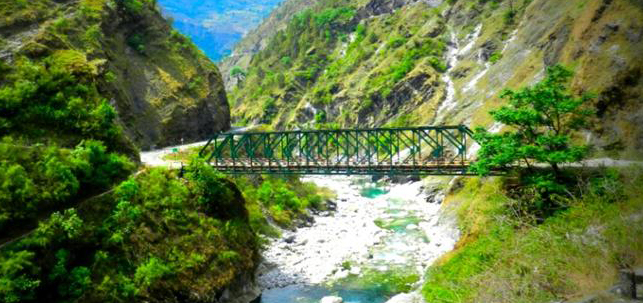
Three Sixty Holidays and Responsible Tourism are Synonyms
With its inception in the year 2012, Three Sixty Holidays became Uttarakhand’s Destination Management Company to promote tourism and provide authentic travel experiences of the Uttarakhand Himalayas in the most sustainable way. The founders of the company have an emotional touch with their native land that’s why they always remain concerned to preserve their nature, culture, and heritage while providing a unique experience to their guests.
Since its establishment, the company apart from providing an incredible taste of travel has also been educating the industry partners and travellers about the importance of the Himalayas, and the value of responsible tourism. We respect the sentiments of the local community of a destination and, strongly believe that collectively we can minimize the harsh effects on the environment, society, culture and tradition during our visit to a destination. Our sustainable actions can also help the locals economically. And, after all, whatever we leave behind will be consumed by our future generations so, it’s our responsibility to act sensibly.
But, before encouraging others we make sure that at the self-level, our daily practices are sustainable, which would inspire others to take responsibility at the personal level.
We at our environmentally conscious workplace
At our workstation, we try to follow sustainable practices as much as possible, so that we could contribute effectively towards the environment right from the beginning. But what are the steps we take to do so? Let’s discuss them one by one:
- We make very less usage of printers so that papers can be used as least as possible. Unless it’s too important, we try to share the e-copies of the documents (vouchers, invoices, tickets, etc.) with our clients. For internal communication with our staff, we use electronic mediums.
- We encourage our staff to use environmentally friendly water bottles (like brass, steel, glass, etc.) rather than plastic bottles.
- For lighting, we use LED bulbs rather than incandescent bulbs or tube lights. It helps us in saving power and contributes towards maintaining a sustainable environment.
- During lunch breaks or whenever we are away from our workplace, we ensure that our computers, lights, and fans are switched off.
- We haven’t installed an air-conditioner at our offices just to avoid harmful gas emissions that affect the climate.
- For wastes, we ensure that all the trash is disposed of properly without affecting the environment.
- At our office washroom, we always use eco-friendly cleaning products.
- After using the toilets, we ensure that all taps are completely turned off, and water is not dripping out.
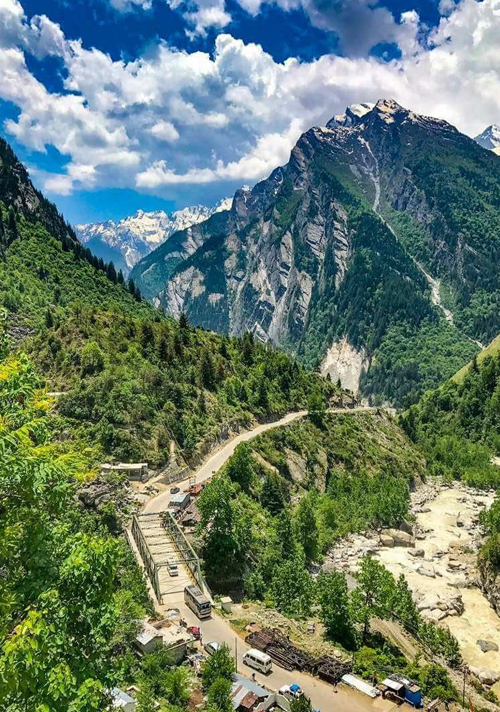
Our sustainable transportation practices
Not only at our offices, but we try our best to minimize the adverse impact on the environment while using the vehicles for our clients or personal purposes. Wondering how? Let’s find it.
- We take utmost care of all our vehicles and ensure that they are timely serviced and have undergone regular pollution checks after a certain time.
- In all our vehicles, we provide a dustbin where our guests can put their garbage. Later, our driver ensures that this garbage is disposed of at a proper garbage pit.
- In busy towns and cities, we suggest our guests use cycle rickshaws for visiting markets and centrally located temples or sightseeing spots. This helps in minimizing vehicle pollution, helps the guests to save their time from being stuck in traffic jams and, also provides the rickshaw riders to earn their livelihood.
- When it is not required, our driver, after taking permission from our guests, switches off the car’s air conditioner. It helps to overcome the unnecessary emission of harmful gases and increases the vehicle’s efficiency too, especially during the uphill drive.
- Although many times it may not be possible, we always remain ready to facilitate carpooling to our guests. This saves the environment from extra gas emissions generates from a vehicle. Also, the cost of transportation can be divided among the travelers making it pocket-friendly.
- While commuting from our residence to the office, we try to use bicycles as much as possible and we also encourage our staff to do so.
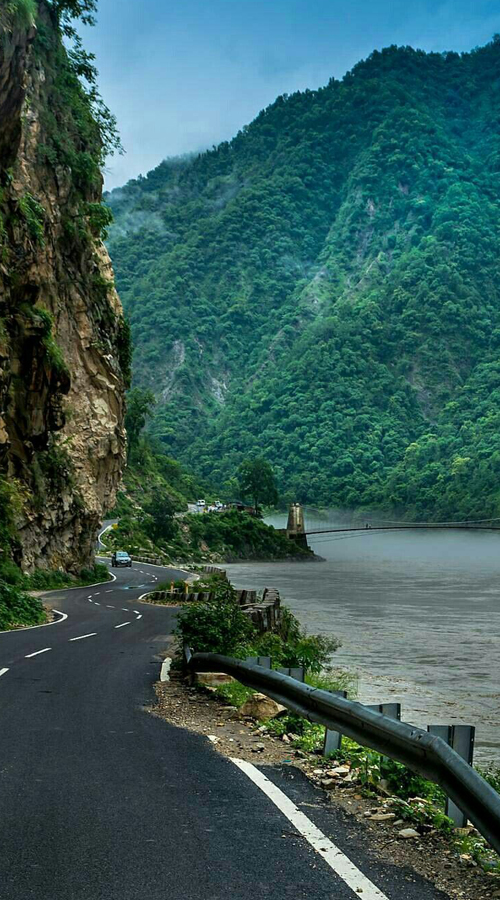
We encourage ‘Eco-Friendly Tourism’
There is no second thought in this that tourism has some negative impact on our environment. But it doesn’t mean that we should discourage traveling. There are countless numbers of people who are dependable on this industry to earn their bread and butter. We can take a middle path that doesn’t affect the industry operations and curtails the adverse effect on a particular destination.
Although, now awareness is being spread among the host communities and participants to take care of these trails, to maintain harmony between us and nature.
Since its inception, Three Sixty Holidays have been organizing treks for adventure and nature lovers. And as we know the importance of these mountains, trees, rivers, and wildlife, we always keep nature first than humans. We are the ones who are very eco-conscious and always put our efforts into preserving the things which a few people sometimes take for granted.
- We discourage the usage of plastic disposables and water bottles. We also suggest our panel of hoteliers, guides, drivers and other service providers use bio-degradable products as much as possible.
- In case if our guests wish to purchase some souvenirs for their friends or relatives from a particular town, we instruct our guides and drivers to take them to the local artisans and craftsmen, so that these people feel motivated and can also earn their livelihood.
- For all the products that we use on the arrival of our guests and even during the tour, we ensure that they are eco-friendly and bio-degradable items.
- For someone who wishes to do photography or videography during his/her tour, we advise them to be mindful of the local customs and beliefs. For example, in a few temples, taking photos and videos is strictly restricted. We expect our guests to respect such instructions. Also, before clicking a photo or shooting a video of an individual or a group, it is always a good gesture to first seek their permission.
- We also try to take our guests to the local restaurants where they can taste the regional cuisines, which in return would help these restaurant owners to earn their source of living.
We bring in environmentally sustainable treks
Uttarakhand is home to several treks. From easy to moderate to difficult, one can find numerous trekking routes here. But in the past few years, due to negligence of the government and with the greed of some trekking organizations, many Himalayan trekking trails have been badly affected.
Although, now awareness is being spread among the host communities and participants to take care of these trails, to maintain harmony between us and nature.
Since its establishment, the company apart from providing an incredible taste of travel has also been educating the industry partners and travellers about the importance of the Himalayas, and the value of responsible tourism. We respect the sentiments of the local community of a destination and, strongly believe that collectively we can minimize the harsh effects on the environment, society, culture and tradition during our visit to a destination. Our sustainable actions can also help the locals economically. And, after all, whatever we leave behind will be consumed by our future generations so, it’s our responsibility to act sensibly.
Our sustainable trekking practices are discussed as below:
- While designing the trekking tours, we choose the routes very carefully. We make sure that our trekkers stick to the pre-existing trails so that the local habitats don’t get disturbed.
- Sometimes, you may find us not taking you through the renowned highlighted trail on the internet and social media. It is so because we want our guests to enjoy and experience nature rather than being a part of over-tourism.
- Before starting the trek with our groups, we organize an induction session for the participants where we educate them regarding the dos and don’ts during their treks in the Himalayas.
- We strictly follow our ‘Leave No Trace’ policy where we carry back the general or recyclable waste or dispose of it in a proper place without harming the local ecosystem.
- We choose our campsites very wisely, considering the vegetation and ecosystem of that place. A spot with breathtaking scenic views may attract to put the camps, but first, we always check if there is no damage to the flora and fauna in installing the tents at such place.
- At our campsites, we discourage campfires as we believe it distracts the local ecosystem of that place.
Responsibility towards local community
While traveling to a destination, it’s our responsibility to think about the local community as well. We should be responsible enough to make sure that whatever money we spend on traveling, goes directly or indirectly to the local community residing in that region. Also, we should be aware of leaving the ecosystem in its same condition that was earlier, before we arrived at that place.
Being a responsible tourist doesn’t require any strenuous tasks but a few simple steps through which, we can give back something to the host community in return for using their region’s resources. We at Three Sixty Holidays, apart from taking responsibility at self-level, also encourage our guests to be a part of responsible tourism that would help the mother nature and local community.
Our sustainable trekking practices are discussed as below:
- For accommodation, we suggest staying in locally owned guest houses, lodges, or homestays.This way the income of the accommodation will go directly to the local businesses.
- Prevent littering and carry back all your trash to the place where it can be disposed of properly. If you find someone throwing trash in an open place, try to educate them politely regarding its harsh effects on nature. Also, on your way to some spot or while strong>trekking, if you find some plastic or other trash, try to pick it up and put it in a nearby strong>dustbin or another provided facility.
- We always prefer using eco-friendly mediums at the professional and personal levels. Even for commuting from our residence to the office and back, many times we use bicycles. During the tour, taking a walk, a rickshaw ride, or battery-operated vehicles could be some of the best practices that we can follow.
- Try to connect with local organizations that are working for the community. These days there are many NGOs and independent organizations who are continuously putting their efforts to help the local community in the field of education, skills development, environment protection, etc. Try to connect with such establishments and help them with your volunteer them financially to keep doing their good work for society.
- Always try to support local craftsmen and artisans by purchasing souvenirs from them. It not most of these in producing the souvenir. Apart from that, sometimes you may also get an opportunity to witness the live production.
- Always try to have your meals at restaurants and cafes that are owned by the locals. It again ensures that the money goes directly to the locals and not some foreign brands or chains who decided to start a business there.
- Always obey the guidelines and local laws of a region or a community. It could be related to how to dress in public, etiquettes while interacting with someone, especially with females and senior citizens. Also, at some places, like inside a temple or at defense sensitive zones, photography and videography are sometimes prohibited. Respect such guidelines and follow them strictly.
- During the tour, if you wish to take pictures of people then it’s always a good gesture'' to first take their permission. If possible, have their photographs printed and gift
them. It’s a nice way to show your thankfulness to their hospitality.
Our inclination towards Corporate Social Responsibility
We at Three Sixty Holidays understand the importance of giving back to society and the environment we are residing in. As a part of CSR activity, we have been associated with an NGO – Payback Foundation, which is continuously working towards the environment protection, education upliftment, and development of rural areas in Uttarakhand.
Apart from volunteering in many social activities organized by this NGO, we also make a little financial contribution on behalf of the whole company, as a gesture of our interest towards society, our heritage, and the environment. We also motivate others to take part in such initiatives that could bring a change for the better.
We are very much passionate about creating a society that is caring, supportive, nature-loving, and eco-friendly.
Corporate Social Responsibility, in short, known as CSR, is an initiative taken by businesses to be socially accountable towards the society we are living in. Under this, the companies put their efforts and contribution into improving society one way or the other.

